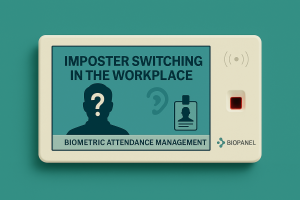Being late to work costs the economy an estimated £9 billion every year, so it’s no joke. But having said that, there is a funny side to being late, and that is that quite a few people often come up with downright ridiculous (and sometimes hilarious) excuses for being so. Of course it’s rarely amusing at the time, but in retrospect, it usually is.
So what are the most ridiculous excuses people have given? Let’s take a look at 21 of them.
Source: Reactiongifs.com
- “Somebody stole my car’s wheels”
- “I thought it was supposed to snow today, so I slept in”
- “A lady was giving birth on the street and I had to help her”
- “My clothes were too dirty so I had to clean them first”
- “My dog chewed my shoes and I had to buy new ones”
- “I saw a UFO and I had to stop and observe it”
- “Somebody played a prank and super glued the locks on my house”
- “My wife left me and she took my car with her”
- “My husband left me and he took my car with him”
- “My goldfish died and I had to bury it”
- “I cleaned the house so I didn’t have to do it after work”
- “My cat wasn’t himself this morning so I stroked him for a while”
- “I thought I was being followed so I drove to the police station”
- “The bus broke down and the driver wouldn’t let me off”
- “I was waiting for an engineer to come round and service my boiler”
- “I went out last night and I’m still drunk now”
- “I ordered a taxi but it arrived over 20 minutes late”
- “I was out of cat food so I had to go to the pet store first”
- “I thought I was sick, but then I realised I wasn’t”
- “I heard somebody had died in the family, but they were fine really”
- “There was a free giveaway at Costa Coffee but the line was really long”
Now that we’ve run through some of the most ridiculous late-for-work excuses ever, it’s time to offer some valuable advice for being on time.
3 easy steps for being on time
1. Re-evaluate how long your routes really take
How long does it take you to get to work? Your answer probably starts with “about”. Do you see the problem with that? Here’s what’s wrong with it – you actually have no idea how long it really takes you to get to work, you can only estimate how long it takes.
Problems arise because over time, routes change, but they do so at a pace slowly enough so that your brain doesn’t realise. So would it surprise you to learn then that your route now takes 5 minutes longer than it did 2 years ago? You can check for yourself how long your route will take – head over to Google Maps and input your starting point and your destination to see how long it will take you by walking, by car or by public transport.
The result will probably surprise you.
For example, 10 years ago to get from Aldersgate Street in London to Great Dover Street in London by car it would take you approximately 5 minutes. It now takes 10 without traffic.
We recommend that you re-evaluate how long your routes take at least once a month, and whenever roadworks or new traffic management systems appear. In addition, it’s important to factor in how long you take to prepare for the working day…
2. Prepare everything in advance
Organisation is one of the keys to never being late to work.
Your clothes, your lunch, your paperwork, your tools and your other essentials should be prepared the night before a working day. If they are not, you will be forced to do all of this on a workday with the clock ticking. The risk here is missing something critical to the work day like a presentation (prepare to be slammed by your boss) or forgetting where you put your car keys (prepare to be at the mercy of rush-hour traffic).
So long as you prepare everything in advance, you won’t have to deal with this, and you will be far less stressed throughout the day too. It’s a win-win.
3. Never plan to be on time
Plenty of people are late to work because they plan to arrive on time, instead of early. The problem with this tactic is that you’re always running the risk of being late, because there is no contingency for the unexpected, such as traffic or sudden weather changes.
This is a mind-set, of course. We are told to arrive to work on time practically all of the time, so it’s ingrained in our brains. But you’ve got to snap out of it.
The simplest way of snapping out of it is to set yourself an earlier deadline. So for example, if your workday officially begins at 09.00am, set an unofficial start time of 08:45am and aim to get to work on or before your unofficial time. This may mean setting off half an hour earlier than you usually do, but it will give you a huge amount of leeway and it’s unlikely that any unforeseen issue like bad traffic will affect your ability to get to work on time. And if you are arriving early, you can bet your soul that your superiors will recognise your effort.


